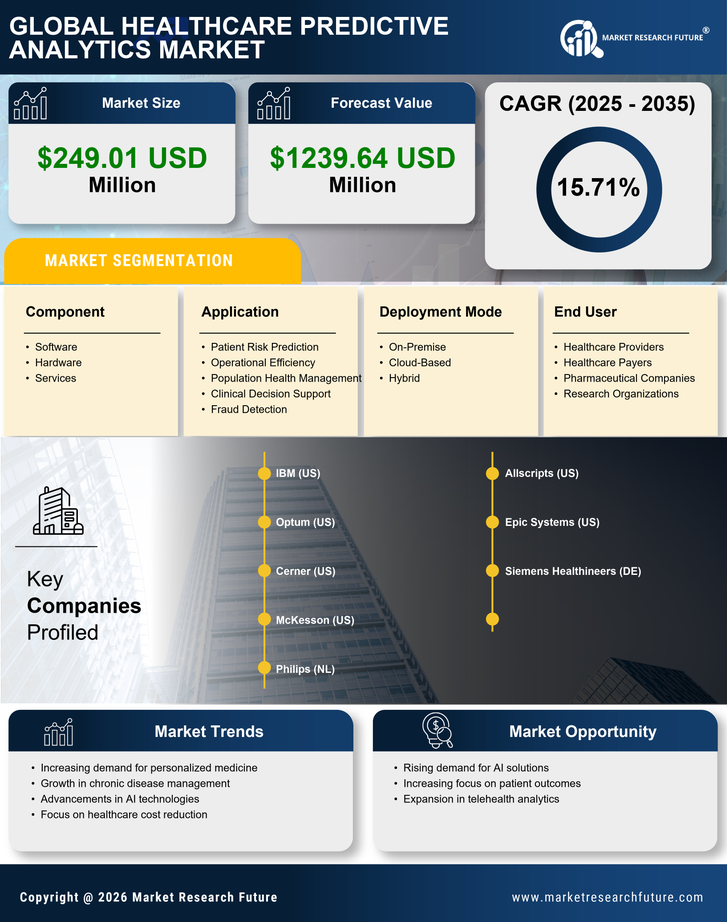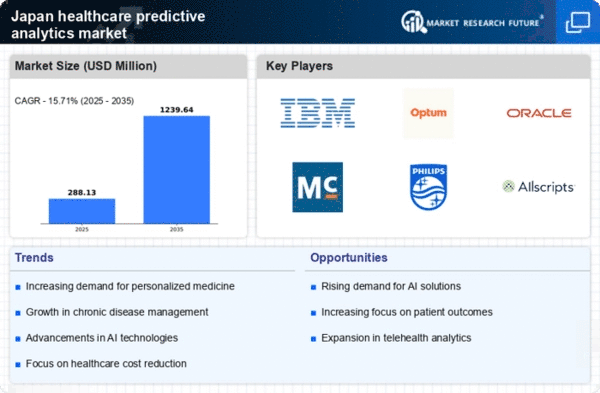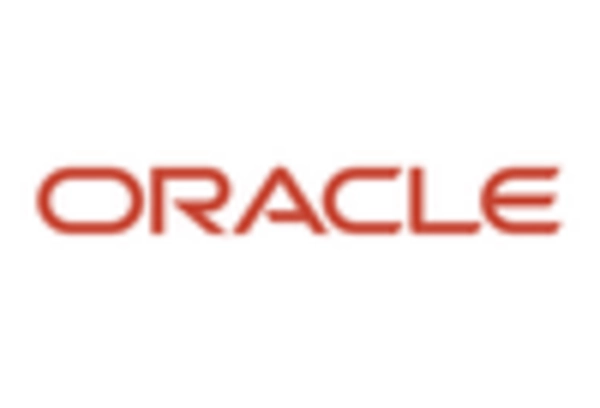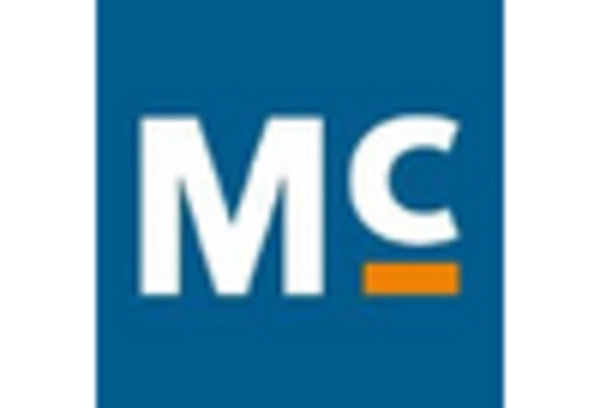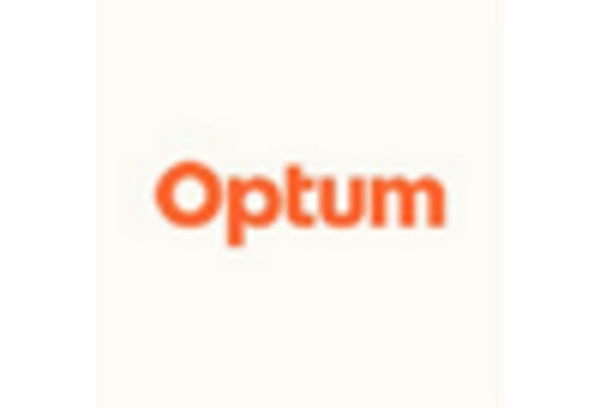Regulatory Support for Data Utilization
Regulatory support aimed at enhancing data utilization in healthcare benefits the healthcare predictive analytics market in Japan. The Japanese government has introduced policies that encourage the use of data analytics to improve healthcare delivery and patient outcomes. For instance, initiatives promoting the sharing of health data among providers are expected to increase by 40% by 2027. This regulatory environment fosters innovation and investment in predictive analytics technologies, as healthcare organizations seek to comply with new standards while improving their services. As a result, the healthcare predictive-analytics market is likely to expand, driven by the need for compliance and the desire to leverage data for better healthcare solutions.
Advancements in Technology Infrastructure
Advancements in technology infrastructure significantly influence the healthcare predictive analytics market in Japan. The proliferation of cloud computing and big data technologies facilitates the storage and analysis of vast amounts of healthcare data. As of 2025, it is estimated that over 70% of healthcare organizations in Japan will adopt cloud-based solutions for data management. This shift not only enhances data accessibility but also enables real-time analytics, which is crucial for timely decision-making. Furthermore, the integration of Internet of Things (IoT) devices in healthcare settings generates a continuous stream of data, enriching the datasets available for predictive analytics. These technological advancements are likely to propel the growth of the healthcare predictive-analytics market, as organizations increasingly rely on sophisticated analytics to improve patient care and operational efficiency.
Growing Investment in Health IT Solutions
The healthcare predictive-analytics market in Japan is experiencing growth due to increasing investment in health IT solutions. As healthcare organizations recognize the importance of technology in improving patient care, investments in predictive analytics tools are on the rise. It is estimated that health IT spending in Japan will reach $20 billion by 2026, with a significant portion allocated to analytics solutions. This investment trend reflects a broader commitment to enhancing healthcare delivery through technology. By adopting advanced analytics, healthcare providers can gain insights into patient behavior, treatment efficacy, and operational efficiency. Consequently, the healthcare predictive-analytics market is poised for growth as organizations prioritize investments in health IT to drive innovation and improve patient outcomes.
Increased Focus on Chronic Disease Management
An increased focus on chronic disease management drives the healthcare predictive analytics market in Japan. With a rising aging population, the prevalence of chronic diseases such as diabetes and cardiovascular conditions is escalating. Predictive analytics tools are instrumental in identifying at-risk patients and facilitating early interventions, which can lead to better health outcomes. It is projected that by 2026, the market for chronic disease management solutions will reach approximately $1.5 billion in Japan. This growing emphasis on managing chronic conditions not only enhances patient care but also reduces healthcare costs, as early interventions can prevent complications. Consequently, the healthcare predictive-analytics market is likely to see substantial growth as healthcare providers seek to implement predictive models that support chronic disease management initiatives.
Rising Demand for Data-Driven Decision Making
data-driven decision-making. Healthcare providers increasingly recognize the value of leveraging data analytics to enhance patient outcomes and operational efficiency. This trend is underscored by a growing emphasis on evidence-based practices, which are projected to improve clinical decision-making by up to 30%. As healthcare organizations strive to optimize resource allocation and reduce costs, predictive analytics tools become essential. The integration of these tools allows for the identification of trends and patterns in patient data, ultimately leading to more informed decisions. Consequently, the healthcare predictive-analytics market is likely to expand as stakeholders seek to harness the power of data to drive improvements in care delivery.
